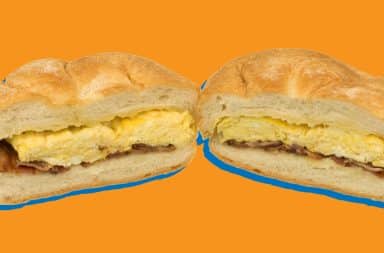Although it may seem that operating a motor vehicle is the kind of skill anyone can master, such assumptions are harmful and damaging to the millions of Americans living as bad drivers. Bad drivers represent a diverse swath of American society. They are teachers, police officers, and yes—me.
Bad driver stigma is rooted in America’s car supremacy, the myth of the rugged individual, and my inability to focus during my high school driver’s ed classes. I paid enough attention to master the basics: namely, that in New York State you can still pass a driver's test if you fail to parallel park. They only deduct six points on the test whether you are four feet away from the curb or one. What do you call the worst licensed driver in America? A licensed driver.
It’s important to use affirming language with bad drivers. Center the person, rather than the behavior. The term “bad driver” can feel judgmental and reactionary. “Person facing motor vehicle operation related challenges” is better, putting the individual first, and my life-long struggle with spatial relationships and depth perception second.
Using person-forward language like this also emphasizes how many individuals will experience moments of improper driving judgment in their lifetime. Me, more frequently than others perhaps, but who hasn’t slow motion rolled into a tree at 1 MPH while executing a K-turn because they couldn’t remember which pedal was the brake? It could happen to anyone. It happened to happen to me.
Instead of focusing on what the driver hit (a tree), or nearly hit (another tree), remember to notice the things they didn’t hit: the mailbox, different trees, the fence. This incident was perhaps a reminder of the implicit contract in my friendships: if you want to see me, you have to pick me up. Please do not invite me anywhere past the one-mile, walking-distance radius from wherever I may be. It’s inconsiderate both to me and the safety of other drivers and inanimate objects beside the road.
Instead of asking me why didn’t I stop at the stop sign, acknowledge that I have light-colored eyes that are very easily snowblind, and because I was going my maximum speed of two MPH it was non-issue, and my car was effectively stopped the whole time. Instead of asking why I was driving so slowly in the left lane, ask why we are so rigid in our segregation of driving speeds. Why can’t slow and fast drivers co-exist in the same lanes? Why are you in such a rush? Instead of asking why I park so weirdly, acknowledge that I have an “outside of the box” approach.
Yes, I am obviously aware that I have a debilitating proclivity for daydreaming and should be banned from operating most vehicles, motorized or pedal-powered, but we live in a country where things are far apart, and there is only one way for me to get to them: sell enough humor writing pieces to afford a full-time driver. I only need to write like 12 million more—that’s why I’m writing this while driving right now–
BOOM!
Whoops, lamppost!
If anything, my driving impairments have given me gratitude for the diverse talents of our community. The least funny person might be a master of the zipper merge. So why should someone with zero capacity for IRL-moving geometry games divert their attention from their own calling? We should all be defined by our strengths, not our premature breaking at a green light we suspect is about to turn yellow.
From now on, I will try to stay in my lane. Next time you see me executing a questionable maneuver on the road, don't say: there goes a really bad driver.
Think instead: there goes a great comedian.


